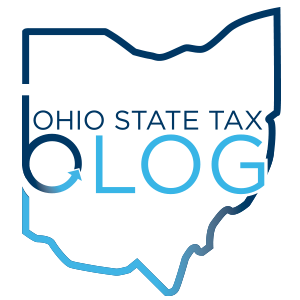Refund Opportunities for Nonresidents of Ohio for Ohio Income Tax on Capital Gain from the Sale of Pass-Through Entity.
Under R.C. 5747.212, Ohio personal income tax is imposed on capital gains realized by out-of-state investors who hold a 20% or greater interest in a pass-through entity or closely held C-corporation doing business in Ohio. Per the statute, the nonresident investor’s gain is apportioned to Ohio according to the three-year average of the entity’s Ohio apportionment ratio. However, the Ohio Supreme Court has held that imposing this tax on a nonresident’s capital gain from the sale of an equity interest in a pass-through entity violated the nonresident’s due process rights, absent a finding that the investor conducted a unitary business with the entity. Corrigan v. Testa, 2016-Ohio-2805.
Corrigan was a Connecticut resident who owned the majority interest (79.29%) in Mansfield Plumbing, L.L.C. As a manager, Corrigan participated in the high-level strategic management of the company and visited the company for board meetings and other management presentations. “According to Corrigan, his role and capacity was as an ‘investor who bought companies with the intention of providing financial and strategic expertise to grow the company for an eventual exit via a sale to a third party.’” Corrigan, at ¶8. But the company’s day-to-day operations were overseen by the company’s other officers and managers.
Upon the sale of his interest in the company, which resulted in a $27.5 million capital gain, Corrigan paid a portion of the tax owed according to R.C. 5747.212 and filed for a refund, which the Tax Commissioner denied.
Normally, the gain from the sale of an intangible is sitused to the taxpayer’s domicile. R.C. 5747.20(B)(2)(c). However, R.C. 5747.212 is a special rule which apportions the gain from the sale of an interest in a pass-through entities or closely held C-corporation doing business in Ohio. The Court found that taxing the gain from an intangible owned by a nonresident was unconstitutional, unless the nonresident engaged in business that was unitary with the company being sold. Otherwise, the taxpayer has not purposely availed itself of the protections and benefits justifying the state’s tax under the Due Process Clause of the U.S. Constitution. Therefore, since Corrigan had not participated in a business unitary with Mansfield Plumbing, Ohio could not tax any portion of his gain from the sale of his interest in the company.
The Tax Commissioner argued that Corrigan had subjected himself to Ohio tax by holding an interest in a pass-through entity doing business in the state. This position was based upon the Ohio Supreme Court’s previously ruling that the state could tax a nonresident’s distributive share of pass-through entity income based upon the entity’s connections to Ohio. Agley v. Tracy, 87 Ohio St.3d 265, 719 N.E. 2d 951 (1999). Dupee v. Tracy, 85 Ohio St.3d 350, 708 N.E. 2d 698 (1999). However, the Court distinguished these cases because Corrigan’s gain was from the sale of an intangible and not generated by Ohio business activity.
It should be noted that had Mansfield Plumbing sold its assets, as opposed to Corrigan selling his membership interest, Corrigan would have been taxed on the company’s gain from the asset sale that passed-through to Corrigan. Thus, this is an additional consideration as to the structure of a sale for nonresident investors planning to sell their pass-through entity.
Nonresident investors who have paid tax under R.C. 5747.212 within the last four years should consider filing a refund claim with the Ohio Tax Commissioner. Please contact us if you have any questions about this case or whether you may be entitled to a refund.
